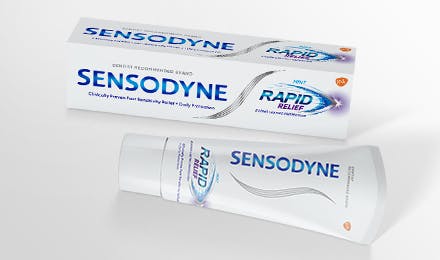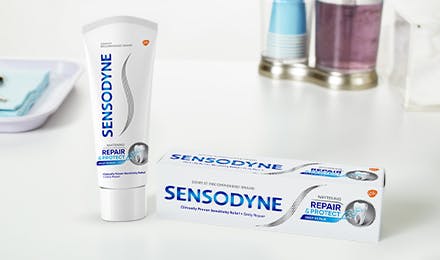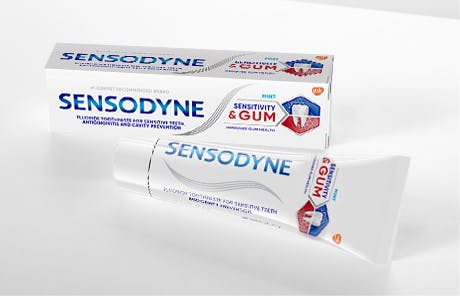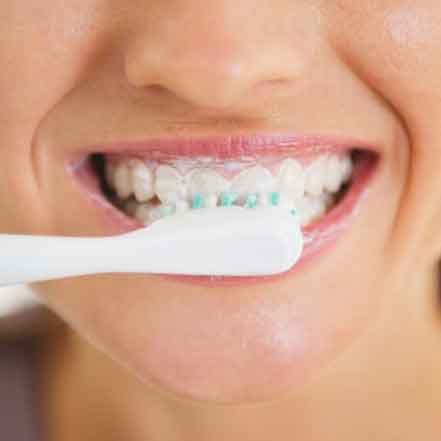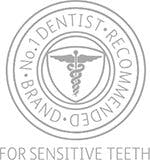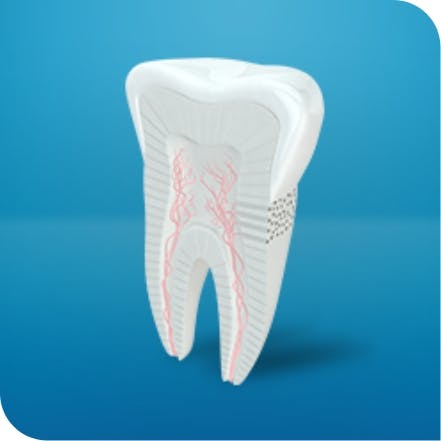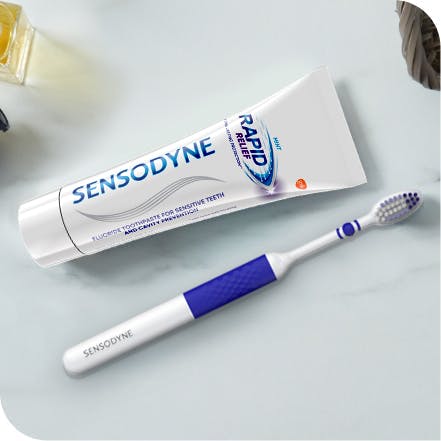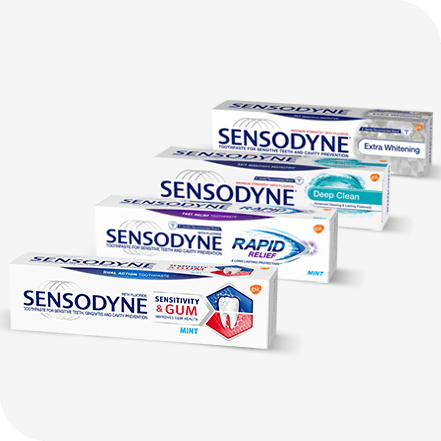Can Brushing or Flossing Cause Tooth Sensitivity?
If you experience sensitivity while brushing, flossing or after a visit to the dentist, you may wonder what causes sensitive teeth in these cases. Could oral care habits be the cause, or are they merely triggers?
To help set the record straight, here’s a look at the role brushing, flossing and a deep cleaning may play in tooth sensitivity, along with a few good oral care tips to help minimize the pain.
Myth vs Truth
Brushing Sensitive Teeth
MYTH:
Brushing causes sensitive teeth
TRUTH:
Brushing teeth too hard or aggressively can trigger sensitivity
How to brush sensitive teeth
It’s important to know how long to brush your teeth and the right technique to use. Brush with a soft-bristled or electric toothbrush for 2 minutes, twice a day.1 Place your brush at a 45-degree angle to your gums, and move back and forth in short strokes.1 Don’t brush too hard or too frequently—you can cause gum recession and experience sensitivity.
Avoid an abrasive toothpaste and hard scrubbing, which can aggravate your teeth.2 Use Sensodyne toothpaste when you brush, which is formulated to treat sensitive teeth.
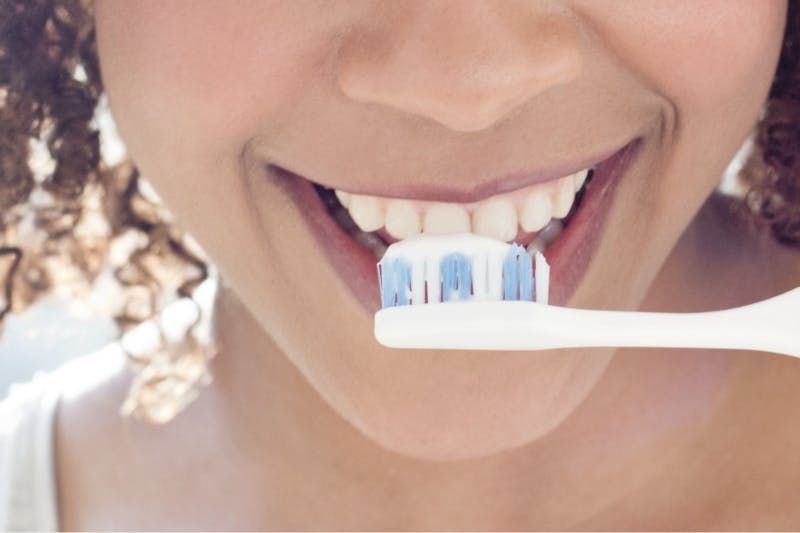
Flossing Sensitive Teeth
MYTH:
Flossing causes sensitive teeth
TRUTH:
Flossing too hard or aggressively can trigger gum sensitivity pain
How to floss sensitive teeth
The key to flossing sensitive teeth is to be gentle – if you floss too hard, you may cause damage to the tissue between your teeth.3 Insert the floss between each tooth and curve it into a “C” shape, gently rubbing it up and down against the sides of your teeth.3 Avoid snapping the floss against the gums, but do make sure to gently slide it into the space between the gum and the tooth.3 Remember to floss at least once a day to help remove plaque and keep your teeth and gums healthy, reducing the risk of sensitivity.
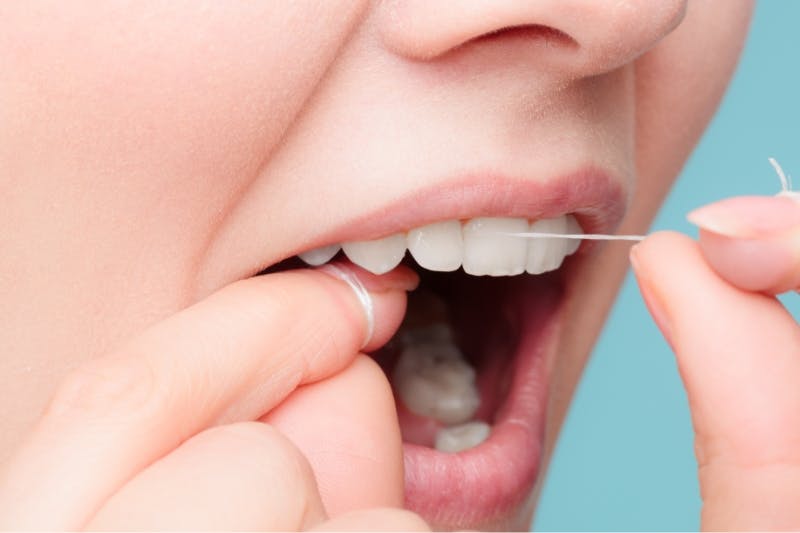
Visiting the dentist with sensitive teeth
MYTH:
Deep cleanings at the dentist cause sensitive teeth
TRUTH:
You may experience temporary sensitivity after a deep cleaning
How to prepare for a dental office deep cleaning
It’s important to regularly visit the dentist every 6 months (or sooner) so you can keep your mouth healthy and eliminate tartar buildup. Use Sensodyne toothpaste for 2 weeks before and after your dental appointment to help prep your sensitive teeth and relieve any pain.*
After a deep cleaning, especially one that includes scaling and root planning, it is common to feel pain for a day or two and tooth sensitivity for up to a week.4 Your gums may feel swollen and tender due to the procedure and your dentist will likely prescribe medication to prevent pain and help you heal.4
*With twice daily brushing
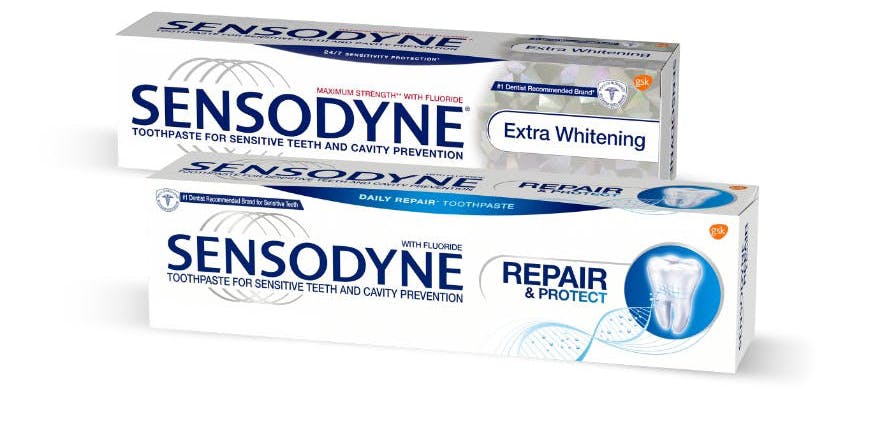
Source Citations:
1. Brushing Your Teeth. MouthHealthy by ADA. https://www.mouthhealthy.org
2. What causes sensitive teeth, and how can I treat them? Mayo Clinic.
https://www.mayoclinic.org/
3. Flossing. MouthHealthy by ADA. https://www.mouthhealthy.org
4. Scaling and Root Planing. MouthHealthy by ADA.
https://www.mouthhealthy.org


